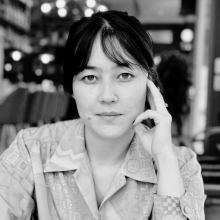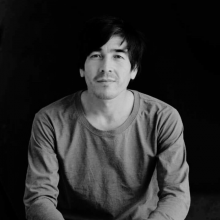Filmed over five years, Writing Hawa is the story of three generations of Hazara women from the same family in Afghanistan. With unique access and empathy, director Najiba Noori films her mother Hawa and niece Zahra in their aspirations to emancipate themselves from patriarchal traditions. Forced into marriage as a child, Hawa is 52 when she can truly start learning to read and write. With the support of her daughter, she opens a small textile business: she searches for traditional Hazara embroideries in the Bamiyan region and turns them into modern dresses to sell in Kabul. Hawa eventually saves her granddaughter Zahra from an abusive father in a remote village and brings her to the capital. There, they study together and make plans for the future. However, the takeover by the Taliban in August 2021 turns the lives of the three women upside down: Zahra has to return to the village she escaped from, and Najiba is forced to flee the country, becoming a refugee in France. From afar, she helps Hawa continue fighting for her dreams.
Content warning: violence

Najiba Noori (author and director) was born in 1995 in Bamiyan, Afghanistan. She began working for media organisations as a volunteer when she was just 15. Noori has participated in several workshops for photography and filmmaking in Kabul, Afghanistan. She has made reports and photo stories for various organisations and agencies, including the AFP, Huffington Post, MSF, FMIC, NRC, and UN Women in Afghanistan. She participated in the Close-Up program 2020-2021 and IDFA Academy 2022. She joined AFP as a video journalist in 2019. In 2021, she had to leave her country when the Taliban took power in Afghanistan, and now, Noori lives in France. Writing Hawa is her first documentary.

Rasul Noori (co-director) was born in 1994 in Bamiyan, Afghanistan and graduated in journalism in Kabul. He has made several short videos for NRC, GIZ, and FMIC in Afghanistan. He was one of the cinematographers of the short film Hoof with the American Company Hungry Man in Bamiyan.